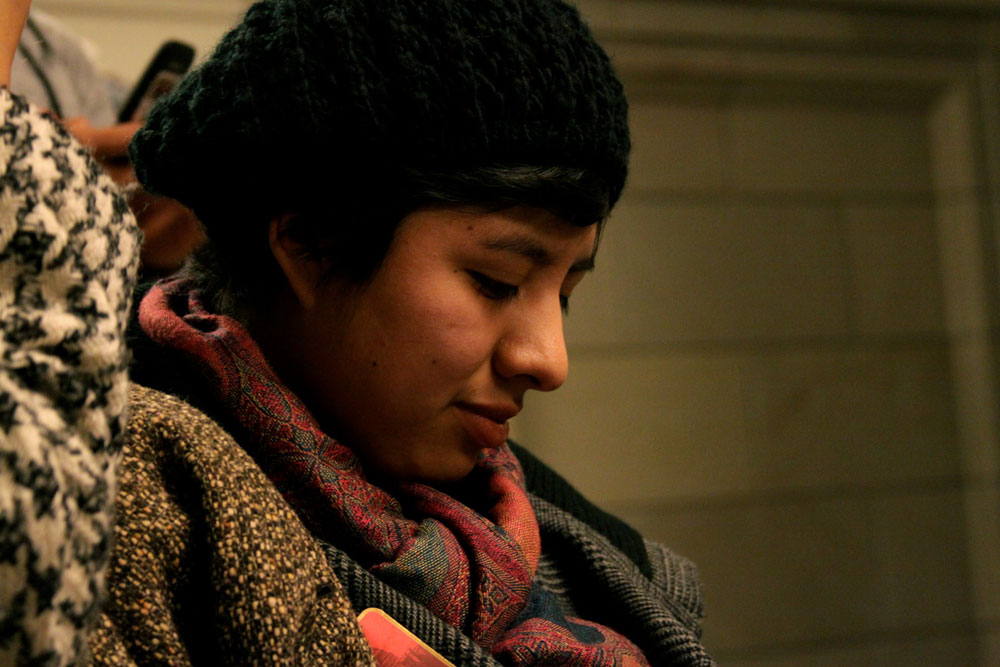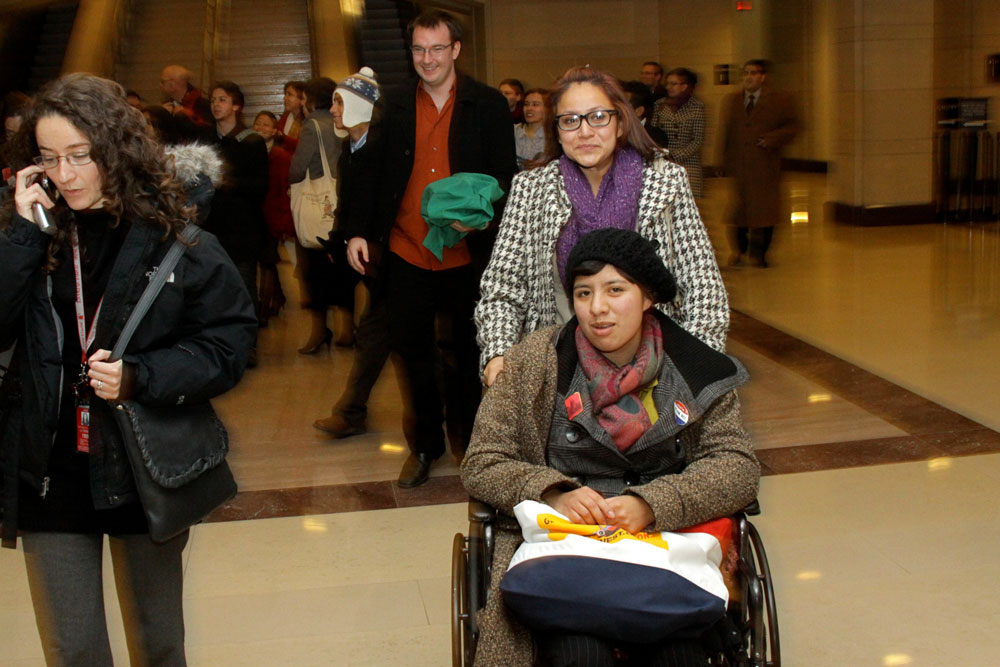WASHINGTON – Lucina Martinez usually stands a little over 5 feet, but fasting for 30 days had her in a wheelchair as she rushed from office to office through the Senate office buildings this week.
Martinez hoped her hunger strike would draw attention to the need of illegal immigrant youths like herself for the Development, Relief, and Education for Alien Minors Act of 2010.
Martinez broke the fast Thursday after the Senate version of the bill was tabled. The Senate may take up the House version of the bill next week.
“We saw it as a victory to have more time to pressure the senators, to speak to them about our stories and why they should support the dream act,” Martinez said.
She broke her fast with a bowl of vegetable soup.

Lucinda Martinez, 19, decided a hunger strike was a peaceful way to bring attention to the Dream Act, which would give allow illegal immigrant students and active military personnel to gain legal resident status. (Raymundo Aguirre/SHFWire)
“It was really good! It was red and had tomato, celery and onions,” Martinez said.
She’ll celebrate her 20th birthday Friday, most likely with more soup. After the long absence of solid food, certain foods could make her sick.
The Dream Act, as the bill is called, would provide children brought illegally into the United States the opportunity to legalize their status. Applicants would need a high school diploma or GED and a clear criminal record. They would have to attend college or join the military for at least two years
Although it would not entitle them to government school grants, loans or health insurance, the bill would allow them to be hired for jobs and remove the fear and stigma of the title “undocumented.”
Martinez and her fellow Dreamers, as the students and supporters call themselves, arrived in the District on Sunday. They have been visiting the offices of members of Congress, lobbying for their support.
The Dreamers trekked the halls of the Senate office buildings Tuesday wielding oversized checks – a fiscal gift to the American people.
A study released Dec. 7 by the Congressional Budget Office estimated that more authorized workers would increase federal revenue by $1.7 billion over the next 10 years. The bill would also reduce deficits by about $2.2 billion because the legalized workers would pay taxes.
Sen. Kay Bailey Hutchison, R-Texas, who once supported the bill, has been one of the hardest votes the Dreamers have tried to get.
“She changed with her politics, but our situation is the same,” Martinez said. “We continue to live as undocumented immigrants.”
Martinez says the first 10 days were the worst. The smell of food made her sick. She became used to it, but she felt left out when others ate.
She and her friends were in the visitor’s gallery when the House passed Dream Act Wednesday. As the votes came in, they held hands and shouted. Afterward, her friends went out to dinner to celebrate.
“Some things were really hard, like Thanksgiving,” Martinez said. She hopes for a belated turkey dinner.
Martinez came to San Antonio from Mexico City at age 6 with her mother, brother and sister.
“My mom had to work really hard. She had to feed us. She saved enough to pay my first year through college. She’s still paying out of her pocket right now,” Martinez said.

Lucinda Martinez, in the wheelchair, and Pamela Resendis are emotional as they leave the House chamber Wednesday after the House passed the Dream Act. Martinez fasted for 30 days to show support for the bill. (Raymundo Aguirre/SHFWire)
“That’s why I pushed so hard for the Dream Act, to lift that weight from her shoulders.”
For the past month, her diet has consisted mostly of water. Her blood pressure is checked daily.
“It’s scary to see it go down,” Martinez said about her pressure readings.
When her blood sugar dropped too low, she drank apple juice. The juice helped keep her organs working. She’s gone from about 130 pounds to less than 115.
Compared to San Antonio’s weather, the District’s 30-degree weather was a big shock to her body. On day 26 of her fast, she woke with stomach and lower back pains. Martinez has been using a wheelchair since.
She sees hunger striking as a peaceful and spiritual approach, even though it could have led to her death.
“With fasting, you really get to know yourself. You grow patient. You know that you are fighting for something that is right and that is worth it and it makes you want to keep fighting,” Martinez said.
_____
Editor’s note: This story was originally publish by the Scripps Howard Foundation Wire.

